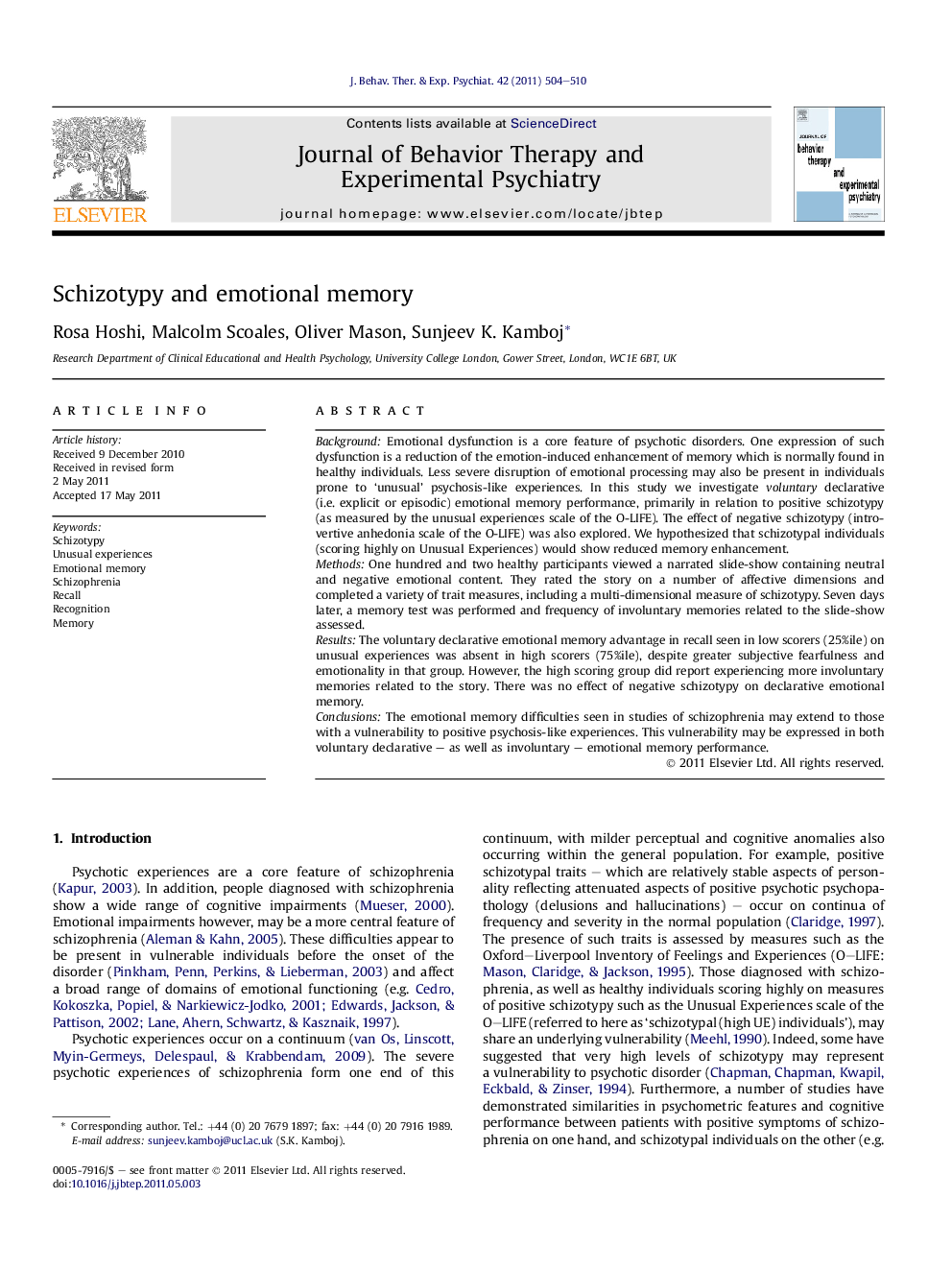| Article ID | Journal | Published Year | Pages | File Type |
|---|---|---|---|---|
| 910416 | Journal of Behavior Therapy and Experimental Psychiatry | 2011 | 7 Pages |
BackgroundEmotional dysfunction is a core feature of psychotic disorders. One expression of such dysfunction is a reduction of the emotion-induced enhancement of memory which is normally found in healthy individuals. Less severe disruption of emotional processing may also be present in individuals prone to ‘unusual’ psychosis-like experiences. In this study we investigate voluntary declarative (i.e. explicit or episodic) emotional memory performance, primarily in relation to positive schizotypy (as measured by the unusual experiences scale of the O-LIFE). The effect of negative schizotypy (introvertive anhedonia scale of the O-LIFE) was also explored. We hypothesized that schizotypal individuals (scoring highly on Unusual Experiences) would show reduced memory enhancement.MethodsOne hundred and two healthy participants viewed a narrated slide-show containing neutral and negative emotional content. They rated the story on a number of affective dimensions and completed a variety of trait measures, including a multi-dimensional measure of schizotypy. Seven days later, a memory test was performed and frequency of involuntary memories related to the slide-show assessed.ResultsThe voluntary declarative emotional memory advantage in recall seen in low scorers (25%ile) on unusual experiences was absent in high scorers (75%ile), despite greater subjective fearfulness and emotionality in that group. However, the high scoring group did report experiencing more involuntary memories related to the story. There was no effect of negative schizotypy on declarative emotional memory.ConclusionsThe emotional memory difficulties seen in studies of schizophrenia may extend to those with a vulnerability to positive psychosis-like experiences. This vulnerability may be expressed in both voluntary declarative – as well as involuntary – emotional memory performance.
► Emotional memory impairment is found in some studies of schizophrenic patients. ► Impairments found in schizophrenia are often found in attenuated form in ‘psychosis-prone’ individuals and can be studied in the absence of clinical confounds (e.g. medication, institutionalization). ► Here we show that schizotypal individuals fail to show the emotional memory advantage seen in non-schizotypal individuals. ► These findings have implications for understanding aberrant salience attribution in schizophrenia, as well as vulnerability to PTSD in schizotypal individuals.
